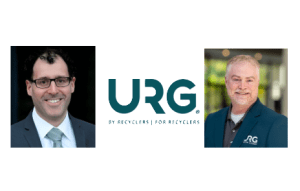Toronto, Ontario — June 16, 2011 — Representatives from the collision repair, insurance, and auto recycling industries convened in Toronto on Thursday morning for a meeting aimed to identify barriers to the increased usage of recycled parts. There was a lot of agreement on what the key issues are but it was clear that a lot of work still needs to be done address them.
The first half of the event focused on a panel of speakers representing each industry. On the panel were Victor Pasnyk from Allstate Insurance, Larry Jefferies from Carstar Automotive, Phillippe Fugere from Lecavalier Auto Parts, and Dominic Vetere from Dom’s Auto Parts.
One of the major issues discussed, which was first brought up by Jefferies, is the need for recyclers to provide more information online and sell via email and online inventory systems. Many of the attendees felt they could generate greater recycled parts sales if the recyclers setup an online system. An online system indicating exactly what parts a recycler has in stock and the price and condition of those parts would allow for sales outside of business hours and would increase efficiency and decrease cycle times, attendees said.
Another issue discussed was the need for clearer communication between recyclers and repairers regarding the condition of parts. Everyone agreed that when a recycled part is going from the recycling facility to the repair shop, the repairer should know ahead of time the exact condition of the part and the amount of time that will have to be spent on it. However, their appeared to be a consensus among repairers that the quality of parts coming from recyclers is much less of issue than it used to be and are generally satisfied with the recycled parts they’re receiving.
As well, a reoccurring theme throughout the morning was the need for greater dialogue with, and education of, the public. People from all three industries agreed it is vital that insurers educate their customers on the quality and economic benefits of using recycled parts instead of OEM and aftermarket parts. Simply by emphasizing the benefits of recycled parts, and not referring to them as “used”, insurers can change the customer’s preconceived notions of what a recycled part is. As Pasnyk said, “Customers need to understand that these parts of a viable option and not of lesser quality.”
Ontario recyclers were keen to discuss the use of non-deployed airbags, which currently cannot be sold in the province. Though most people agreed that allowing the sale and instalment of non-deployed airbags could save a lot of money for all parties concerned, the issue remains who if liable if one of those airbags does not perform properly.
The greatest concerns for the repairers are cycle times and profit margins. With more OEMs now price matching and more aftermarket parts than ever, recyclers must find a way to make their product the better financial option for repairers and insurers. As well, delivery times between recyclers and repairers must be quick and consistent because a delay has a negative impact on everybody involved. Of course, these issues and others cannot be solved in only a few hours. Many issues were identified and discussed but a lot of work still needs to be done to deal with them. At the end of the summit, a volunteer task force, comprised of a few members of each industry, was created. This task force will meet at a later date to discuss the identified issues in greater detail and hopefully create an action plan for dealing with them.


























